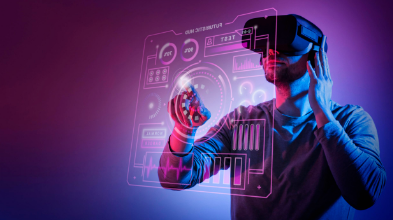How Entertainment Is Evolving in the Digital Age
The evolution of entertainment in the digital age is marked by significant shifts driven by technological advancements. Streaming services have revolutionized content accessibility, while social media platforms allow audiences to engage with narratives in ways previously unimaginable. Additionally, user-generated content challenges traditional norms, creating a more dynamic landscape where anyone can contribute. As immersive technologies like virtual and augmented reality redefine storytelling, one must consider the implications of these changes. What does this mean for the future of content creation and consumption, and how will it reshape our collective experience?
Rise of Streaming Services
The meteoric rise of streaming services has fundamentally transformed the landscape of entertainment consumption, challenging traditional media paradigms and reshaping audience expectations in the digital age.
Subscription models have proliferated, offering unprecedented access to vast content libraries that empower viewers to curate their experiences.
This evolution not only democratizes entertainment but also prompts critical discourse on ownership, creativity, and the future of content distribution.
See also: From Gaming to Streaming: The Future of Interactive Entertainment
Impact of Social Media
As social media platforms increasingly become integral to the entertainment ecosystem, they not only amplify content reach but also redefine audience engagement, fostering an unprecedented level of interaction between creators and consumers.
Influencer marketing emerges as a powerful tool, allowing brands to forge authentic connections.
This dynamic shifts the balance of power, enabling audiences to actively shape narratives, challenging traditional hierarchies within the entertainment landscape.
User-Generated Content
User-generated content (UGC) has emerged as a transformative force within the entertainment industry, empowering audiences to not only consume but also create and disseminate their own narratives.
This shift blurs the lines between professional creators and everyday users, enhancing audience engagement while introducing innovative avenues for content monetization.
As a result, it fosters a dynamic ecosystem where creativity thrives, and individual voices resonate with unprecedented authenticity.
Immersive Technologies in Entertainment
Immersive technologies, such as virtual reality (VR) and augmented reality (AR), are revolutionizing the entertainment landscape by creating unparalleled experiences that engage audiences on deeper emotional and sensory levels.
These augmented experiences redefine interactive storytelling, allowing users to become active participants rather than passive observers.
This shift towards sensory engagement fosters a new era of freedom in entertainment, challenging traditional narratives and expanding creative possibilities.
Conclusion
The evolution of entertainment in the digital age symbolizes a renaissance of creativity, where the traditional gates of access have crumbled, allowing diverse voices to contribute to the cultural tapestry.
Streaming services serve as the vast ocean, social media as the wind propelling narratives forward, and immersive technologies as the vessel navigating uncharted waters.
This transformation not only redefines storytelling but also invites active participation, suggesting a future where every viewer becomes a co-creator, reshaping the very essence of entertainment.






